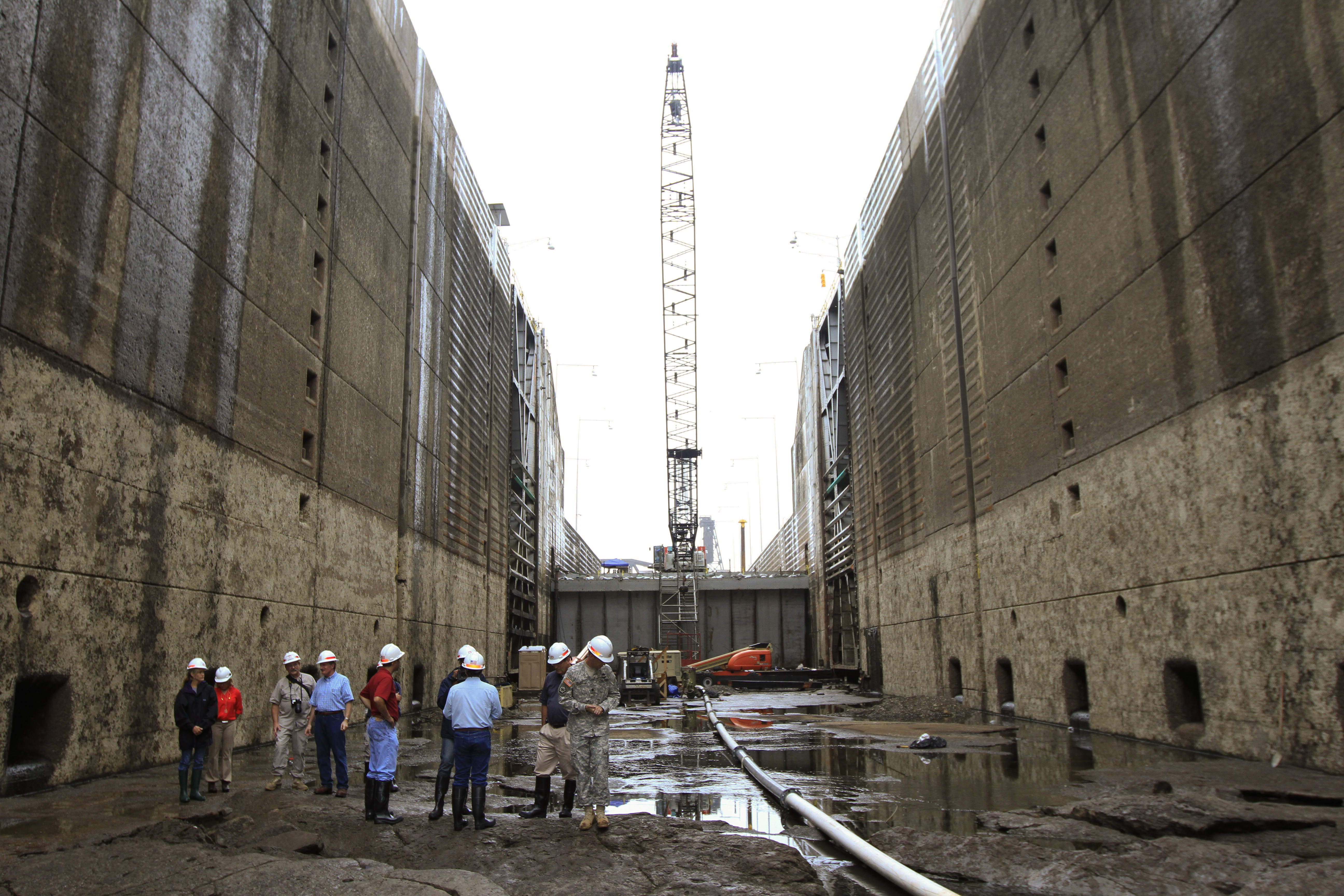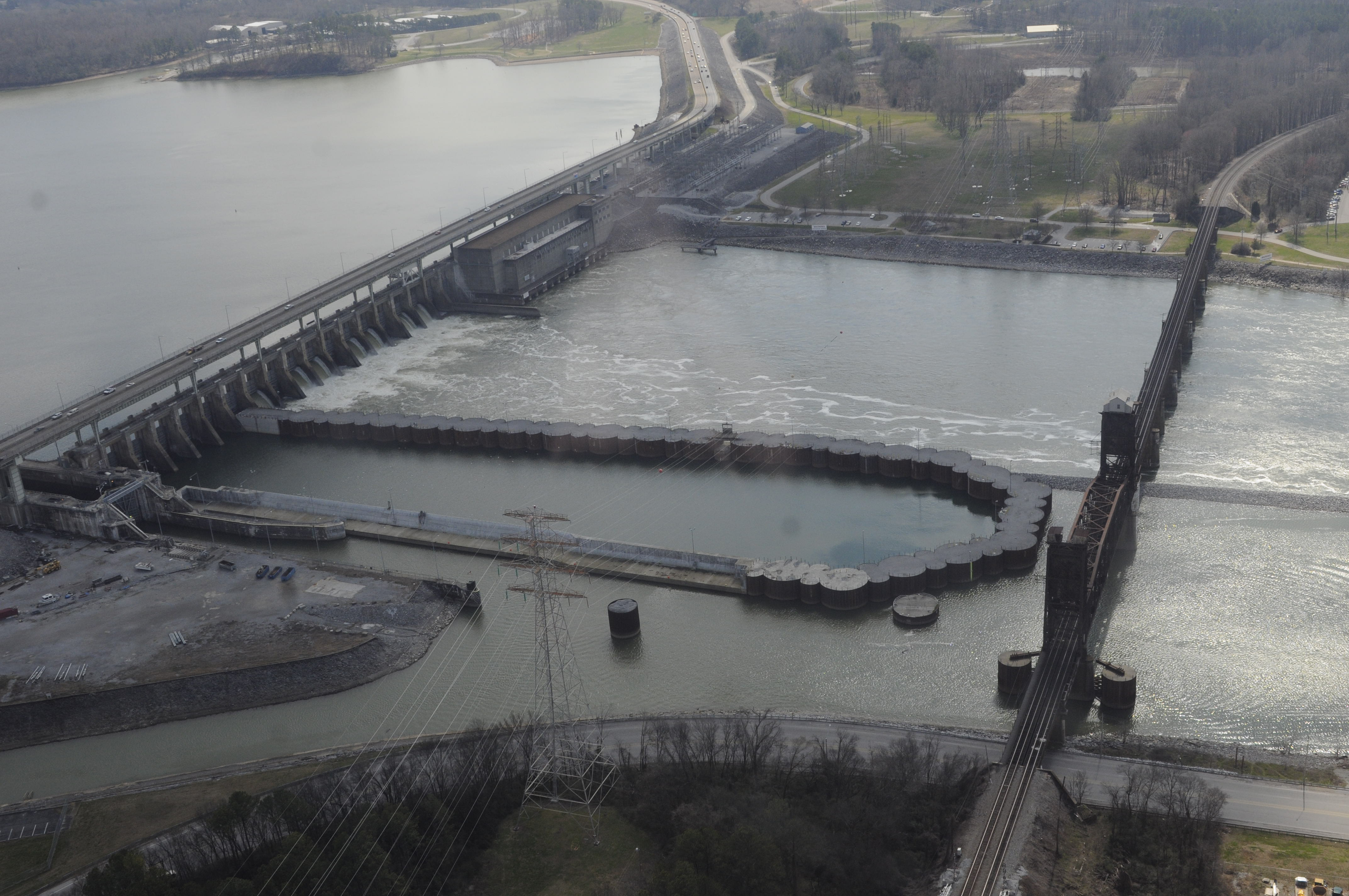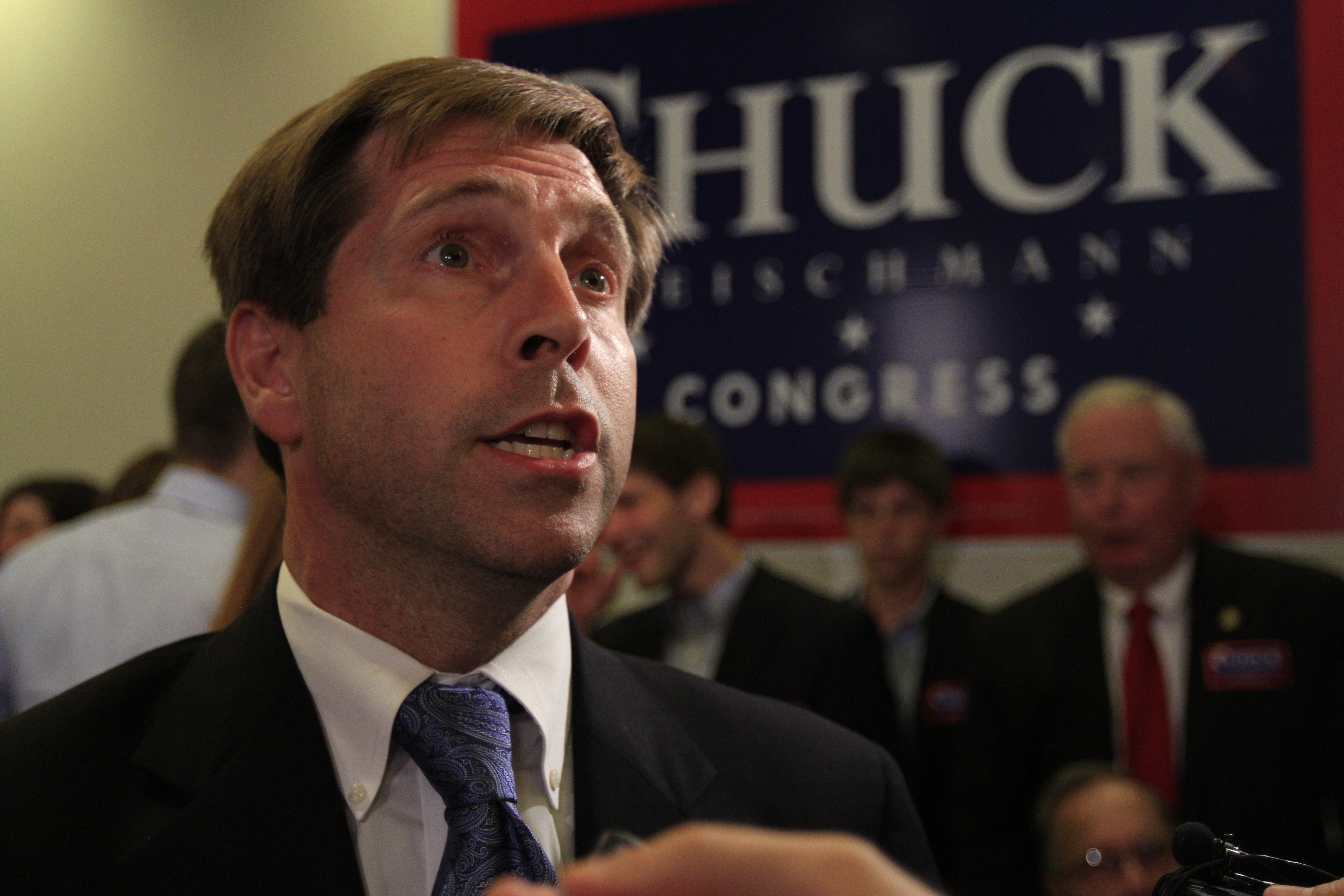Construction on the stalled Chickamauga Lock in Chattanooga could be revived next year under a sweeping new plan for water projects set for a vote in the U.S. House today.
But to ensure the new lock is built before the crumbling existing lock must be shut down at the Chickamauga Dam may also require Congress to boost the fuel tax on barge operators that use the lock.
The compromise water resources bill scheduled for votes this week in both the House and Senate would alter the way the biggest dam and lock project in America is funded to free up $105 million more for other unfinished lock projects, including the half-finished new lock at the Chickamauga Dam.
"I'm excited to see this move forward because we've been working on this for a long time," U.S. Rep. Chuck Fleischmann, R-Chattanooga, said Monday. "We had a structural problem with the trust fund that pays for these projects that we have to change, and this measure does that."
The Water Resources reform package, which has been under development for seven years, authorizes billions of dollars of water projects over the next decade and revamps the funding formula for lock projects to potentially restore at least some level of funding in fiscal 2015 toward completion of the $696 million replacement lock at the Chickamauga Dam.
Under the current funding formula, inland waterway projects are equally funded by revenues from fuel taxes paid by the barge industry and matching federal dollars from U.S. taxpayers. Because of cost overruns at the new $3 billion lock and dam being built at the Olmsted Dam on the Ohio River, the fuel taxes paid into the Inland Waterways Trust Fund are inadequate to fund any new locks or dams beyond the Olmsted project.
As a result, money ran out four years ago to finish the new lock that will replace the crumbling existing Chickamauga Lock, which was built in 1940.
The U.S. Army Corps of Engineers has spent more than $180 million in planning, designing and building the new lock just below the Chickamauga Dam. The Corps has ranked the new Chickamauga lock among its top priorities, but the Chattanooga project has remained behind both the Olmsted Lock on the Ohio River and the Lower Monongahela Lock in Pennsylvania.
The Water Resources Development Act up for a vote in Congress this week would boost the taxpayers' share of paying for the new Olmsted Dam from 50 percent to 85 percent of its costs each year. The Waterways Council Inc., which represents the barge users that ply America's inland waterways, estimates that change should free up $105 million next year for other priority projects beyond the Olmsted Dam, possibly including the new Chickamauga Lock.
"This act is good news, finally putting Chickamauga Lock near the head of the line of essential American waterways to be rebuilt, and authorizing new funding to do it," U.S Sen. Lamar Alexander, R-Tenn., the ranking Republican on the energy and water subcommittee of the Senate Appropriations Committee, said Monday. "But the work will not be done fast enough to keep jobs flowing into East Tennessee until Congress accepts the offer of barge owners to pay more to accelerate the work."
Alexander has endorsed a proposal from the Waterways Council and its barge operators to raise the diesel fuel tax by 9 cents a gallon, which would generate more than $40 million that could be matched with federal funds to swell the total available funding for lock projects beyond Olmsted to $185 a year.
"That should give enough money to proceed with a basket of projects, including the restart of the Chickamauga and Kentucky locks on the Tennessee (River)," said Mike Toohey, president and CEO of the Waterways Council. "This (tax increase) is absolutely critical. All we need is a tax bill to attach this measure to for approval."
Toohey said there are 300 barge companies that will pay the higher tax "and all of them support it so there is absolutely no controversy around this issue."
The White House has proposed a lockage fee for all boaters, both commercial and recreational, to pay when they use locks like those on the Tennessee River. But Toohey said that would not be as effective as the fuel tax increase.
Alexander said the fuel tax increase "is in everyone's interest, including recreational boaters who would not have to pay more but would see their waiting time to go through the lock reduced."
"Failure of the existing lock-a real possibility if the delay in funding takes too long - would threaten jobs in Chattanooga and throughout East Tennessee, including at the Oak Ridge National Laboratory, nuclear weapons facilities, nuclear power plants and manufacturing facilities," Alexander said in a statement.
Fleischmann said Monday he is open to looking at new revenues for the trust fund once a measure takes form through an appropriations bill.
"It's certainly something I would look at because we simply have to make sure that the Chickamauga Lock in finished," he said.
Contact Dave Flessner at dflessner@timesfreepress.com or at 757-6340.




